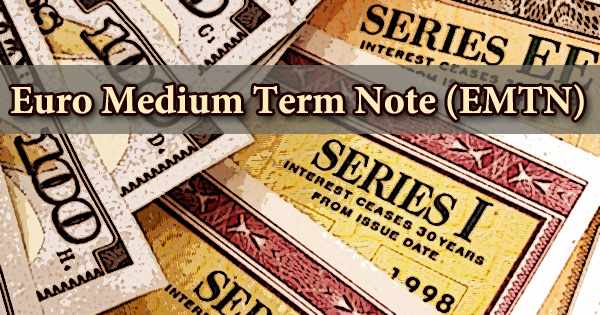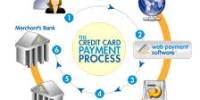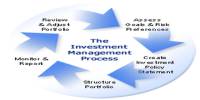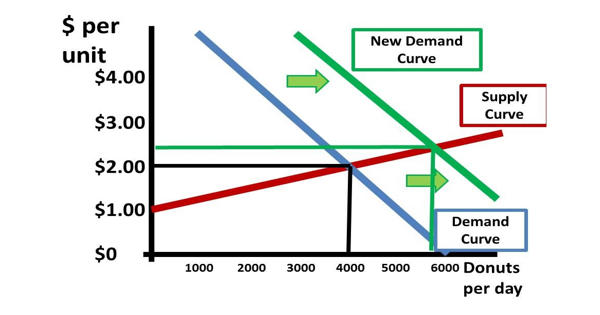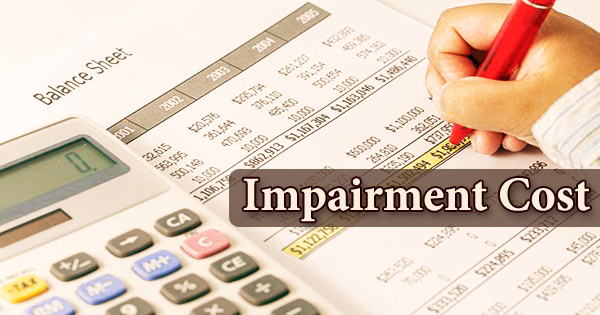A euro medium-term note (EMTN) is a flexible, medium-term financial instrument traded and issued outside of the United States and Canada. EMTNs are unsecured debt instruments with a five to ten-year maturity. They are normally given in nations that arrangement with euro monetary standards. Euro cash is a sort of money that is held outside of the nation of beginning. Investors can use EMTNs to gain access to international currencies and marketplaces. The securities may be “plain vanilla” or derivative-structured.
EMTNs are regularly recorded, however not really exchanged, on the London or Luxembourg Stock Exchanges. These instruments require fixed installments and are straightforwardly given to the market with developments that are under five years. Euro Medium-Term Notes (EMTNs) are issued in markets that deal in euro currencies outside of the United States and Canada. Investors can use the securities to obtain foreign currency.
EMTN documentation characterizes a proceeding with authoritative connection between the guarantor, organizing bank, delegated vendors, giving and paying specialist, trustee and the posting specialist, every one of whom are chosen by the backer. EMTNs make it easier for an issuer to obtain financing in overseas markets. Firms also continuously offer EMTNs, whereas a bond offering, for example, happens all at once. EMTNs have a higher interest rate. Because the securities are tailored to the investor’s demands, they come with significant dealer fees.
EMTNs offer variety as organizations can give them in a wide scope of monetary forms and with different developments. They are uncollateralized debt protections, which implies that if the guarantor defaults, the financial backer has little plan of action to gather the chief sum as there are no resources for back the obligation. EMTN issuers must have a program, which is a standardized document. The program is transferable across all issues and has a high percentage of sales due to preset buyer syndication.
The issuer’s financial statements are presented in an offering circular, which contains general terms and conditions, defines the parties’ roles and obligations, and contains the issuer’s general terms and conditions. Every one of these records together comprise the lawfully restricting offer, the guarantor being answerable for their exactness. Medium-term notes (MTNs) noticed that bear a similar definition as EMTNs, however exchange inside the United States and Canada should keep an alternate program.
Advantages and disadvantages of euro medium-term notes (EMTNs):
Advantages –
- In comparison to other short-term investments, Euro medium-term notes pay a greater interest rate.
- EMTNs help investors gain access to new markets and currencies.
- The entity can raise funds privately because euro medium-term notes are transferred from the issuer to the investor.
Disadvantages –
- Euro medium-term notes are expensive, and the premium can completely negate the interest received by the investment, leaving the investor with very little profit.
- The laws of the foreign jurisdiction would apply because the notes involve other foreign currencies.
EMTNs are not underwritten; instead, an arranging bank sets up an EMTN program, which is then promoted by dealers on a best-efforts basis. In the course of the last 10 to 15 years, medium-term notes have arisen as a critical subsidizing hotspot for U.S. what’s more, unfamiliar organizations, supranational foundations, government offices, and sovereign countries. EMTN programs allow issuers to tap into investor demand at nearly any time because they are continuously supplied. MTNs (medium-term notes) are often driven by investors, with issuers offering paper to capitalize on current market conditions.
The United States has been giving MTNs since the start of the 1970s in the wake of presenting the obligation instruments as a choice to transient financing in the business paper market and long haul getting in the security market. Because they serve the midway ground, these instruments are called “medium-term.” The EMTN programs are designed to be offered outside of the United States. Because many businesses demand financing on a regular basis, these services make it simple to obtain notes by eliminating the requirement to submit documentation on a regular basis.
MTNs didn’t acquire a lot of force until the 1980s when the MTN market moved from a dark corner of the market intensely abused via automobile account organizations to a key wellspring of obligation financing for many significant enterprises. While American organizations have Euro MTN and US MTN programs, European firms typically only have Euro MTNs. Outside of the United States, the EMTN market has exploded in popularity, attracting a slew of new enterprises and industries.
A European organization can keep a U.S. MTN on the off chance that it is enlisted with the Securities Exchange Commission (SEC) in the U.S. A non-European organization and a non-U.S. organization can have a European MTN on the off chance that they need to give the obligation protections in the European business sectors. Under the reverse inquiry provisions of the documentation, any bank with investor demand can approach the issuer with an offer and execute the transaction. Companies can issue EMTNs in a variety of currencies and with a variety of maturities, usually up to 30 years, though some may have a significantly longer maturity.
Information Sources:
